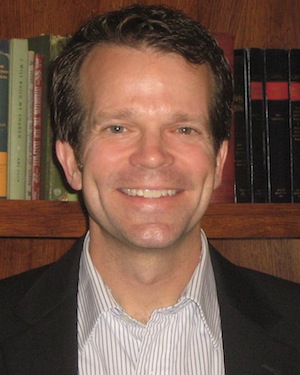What does God look like?
Even though many Presbyterian Church (USA) churches don’t refer to God as the masculine pronoun “He” anymore, we still say Father, Almighty. It’s hard for me not to imagine an imposing masculine figure when I hear these terms.
The Doxology we sing has the phrase “Praise God above ye heavenly host.” I didn’t know until recently that “host,” also used in phrases like “Lord of Hosts,” means “army.” Are we meant to fight for God, or fear God’s attacks? Are we meant to think of holiness in terms of violence? How many hymns have I sung that give thanks for Jesus’ shed blood? A hymn I sang in worship this year was “Let Us Build a House” by Marty Haugen, which has the line, “the cross shall stand as witness and as symbol of God’s grace.” Is the equivalent of the electric chair a symbol of God’s grace? I don’t believe it is.
This subtly, scary, God imagery sunk deep into my brain as a child. Regardless of the social progressiveness of our denomination, messages of God’s power and our unworthiness, inked into our theology by John Calvin and others as well as my own anxious personality, led me to imagine a punitive God.
I think the biggest damage done to my psyche by these messages was the belief that I was inherently bad. There is a memoir on living with OCD by the writer Lily Bailey called Because We Are Bad. I read it because the title reminded me so much of my own inner monologue as someone with OCD. Unfortunately, this phrase is not unlike things I hear regularly in the Prayer of Confession. For example, I have heard these messages:
- We don’t deserve God’s love.
- “We deserve God’s condemnation,” as the PCUSA Statement of Faith says.
- Even if we never act on them, our thoughts are sinful.
Anyone with OCD will bristle with familiarity at the idea that our thoughts are bad. We know well the intrusions that show up without warning. We have scary thoughts that can lead us to believe we deserve suffering, not love. With these messages of condemnation and unworthiness, the church, rather than being a haven for healing, becomes a participant in the cycle of obsessive-compulsive disorder.
I have struggled with my relationship with church. When I’ve spoken about these harmful messages, other congregants said they didn’t think of it that way: they ignored the messages they disagreed. For pastors, they read those passages to reach some people but hoped other congregants would ignore them. But I can’t stop thinking of the anxious children, people of color, queer congregants, disabled church members, and everyone with pain—that is, everyone—who hears a message that we don’t deserve to be loved. The Planned Parenthood webpage on abusive relationships says that emotional abuse includes “making you feel like you don’t deserve love.”[1]
How can this be a church for the “least of these” if our prayers meet the criteria for emotional abuse?
I have tried to imagine different ways of wording the Prayer of Confession, but doing a full reversal from “we are inherently bad” to “we are inherently good,” while tempting, doesn’t feel effective for me. A cognitive distortion common in OCD is “all-or-nothing” or “black-and-white” thinking, where either one option is true or the complete opposite must be; there is no room for gray. Either I am entirely forgiven and have nothing to worry about or condemned for even thinking an unkind thought, nothing in between. OCD is often a need for certainty. Treatment for OCD is often learning to tolerate uncertainty.
So, to counteract this all-or-nothing distortion, can we sit with the discomfort of the in-between? This is something that came up over and over at the Faith and OCD Conference I attended in April 2024. It benefits both people’s faith and their OCD to be tolerant of uncertainty and promote curiosity and questions more than having answers.
We can try to think of God, ourselves, and the relationship of the “in between” in new ways.
My professor, Grace Ji-Sun Kim, a PCUSA minister, writes, “The Bible is full of images of warmth, love, mercy, and kindness that can guide us in our work for social justice and equality … When we focus on these, instead of on the images of an all-powerful, patriarchal, king-like divinity, this can empower us to love our neighbors and all creatures on Earth.”[2]
I had thought of God as masculine, angry, and white. Sometimes, the idea of God as judge became so painful that I tried to reject a belief in God entirely. But I also remember the peace and love instilled in me through church alongside this pain. I believed in redemption: that no one should be incarcerated. I believed there was beauty in nature. Even if I struggled to see worth in myself, I saw it in the living world around me, infused with value from a loving God.
For me, personally, my seesawing between “everything I hear in church must be true” or “it is all false” acted as another function of the all-or-nothing thinking so present in my OCD. I was ignoring my longing for a curious and questioning relationship with the faith I was raised in to grasp at false certainty.
Instead of giving in to that distortion, can I imagine God in another way? Many multitudes of ways?
What if God is so small we could hold Them in our hands and take care of Them?
What if God is so big that we can look out into the world and see nothing but Them? And we are in God and God is in us?
I can imagine God as relationship or connection, which I feel when I sing songs hundreds of years old in church surrounded by people I care about. Rather than a scary God, a Lord of Armies, I tried to imagine God as smaller: a friend who would sit by me in my house when I was alone and the sun had gone down and I felt an emptiness around me. What if, instead of that emptiness, I could feel like I had not only a sense of support but a gentle nudge to get moving? Not a God who condemned my intrusive thoughts as sinful, but teased me a bit and made fun of my OCD when it reached absurdity, reminding me there was no way that having OCD could stop me from being loved?
I wonder if my all-or-nothing thinking has manifested in my desire to “fix” the church. If we could just change this prayer or that practice, then everything would be perfect! If I kept going to therapy or figured out the right medication, I’d never have bad thoughts again. I would become a good person; I’d be perfect. But that was impossible. How can I accept the imperfection in the church while still working for it to be better? How do I accept my own imperfection?
I am no longer trying to think of categories of “good” and “bad” people but rather “helpful” and “harmful” behavior. Everyone needs accountability for their actions; everyone deserves safety and rest. My therapist has tried to convince me that having the scary intrusive thoughts that come with OCD does not make me a bad person. It is a disorder, built into my genes. It was, for better and worse, how I was born. It is my brain trying its darnedest to protect me and everyone around me. My thoughts are not inherently sinful; I am not deserving of condemnation. I don’t have to believe in a punishing divinity. I can imagine a gentle God.
[1]Planned Parenthood, “Abusive Relationships” (Washington, DC: Planned Parenthood, n.d.), accessed May 1, 2024, https://www.plannedparenthood.org/learn/teens/relationships/abusive-relationships
[2]Grace Ji-Sun Kim, “God Doesn’t Have to Be a White Man” (Chicago, IL: U.S. Catholic, April 24, 2024), accessed May 3, 2024, https://uscatholic.org/articles/202404/god-doesnt-have-to-be-a-white-man/

Carson Risser (she/her) lives in Cary, NC. She is pursuing a Master of Arts in Theopoetics and Writing at the Earlham School of Religion.






Unbound Social